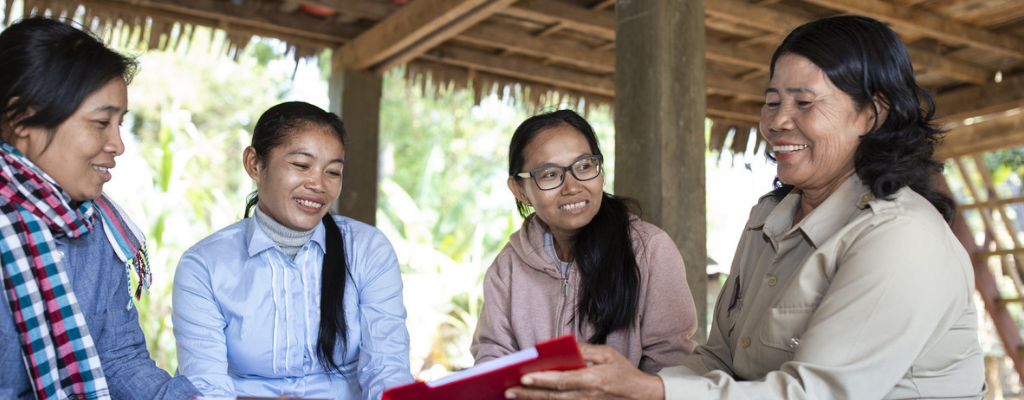
Feminist and Development Practice
Explore ways to improve organisational feminist practice, including practical toolkits and frameworks.
The Double Burden: the impact of economic empowerment initiatives on women’s workload.
In all countries, women and girls do the bulk of unpaid care work. On average, women spend twice as much time on household work as men and four times as much time on childcare. Women also work longer hours than men overall when both paid and unpaid work is taken into account. This brief draws…
Do No Harm: Human Security Policy Brief
This brief discusses this importance of understanding interactions between women’s economic security and violence against women in the Pacific to inform policy and practice that advances human security. In a context where prevalence rates of violence against women and girls in the Pacific are among the highest in the world and the importance of women’s…
Women’s Savings Club Learning Paper
The Tugeda Tude fo Tumoro (TTFT) project was established in 2009 to support communities to achieve gender-inclusive sustainable natural resource management. As part of this project, the TTFT women’s savings club model was developed as a means of promoting sustainable livelihoods and increasing women’s participation in decision making in order to bring about sustainable natural…
Gender and Culture Learning Paper
In February 2012, a workshop was held in Honiara, Solomon Islands as part of ‘Navigating Gender and Culture: learning from local gender advocates’; a project run by International Women’s Development Agency and funded by the AusAID Innovations Grants Program. This project aimed to document the knowledge and experience of local gender advocates in four (4)…
Learning Paper: IWDA and women’s economic empowerment
This paper explores IWDA’s women’s economic empowerment program through the viewpoint of three evaluations undertaken in 2011-12. Drawing from the learning in these evaluations and from current literature, this paper highlights strengths of IWDA’s economic empowerment program as well as areas where greater coherence and effectiveness can be achieved.
Working Effectively With Women And Men In Water, Sanitation And Hygiene Programs, Resource guide
This guide provides ideas about how to make WASH approaches more sensitive and responsive to the views, status, needs and responsibilities of both women and men. It is designed to be used at the same time as other WASH guidance material, as well as improve and build on existing WASH approaches. The material in this…
Gender Matters 6: The Beijing Platform for Action – IWDA partner perspectives 20 years on
Gender Matters is a vehicle for IWDA to share emerging ideas and new research. It comes out at least twice a year, providing insights into gender and development issues from both a theoretical and a practical perspective. Gender Matters 6 focusses on the Beijing Platform for Action and IWDA program partner perspectives 20 years on.
Gender Matters 5: Gender equality is smart economics – but it takes more than money and markets
Gender Matters is a vehicle for IWDA to share emerging ideas and new research. It comes out at least twice a year, providing insights into gender and development issues from both a theoretical and a practical perspective. Gender Matters 5 focusses on the gender equality and economics, with a look at savings clubs in Solomon…
Gender Matters 4: Gender really matters – Perspectives from the field and implications for poverty measurement
Gender Matters is a vehicle for IWDA to share emerging ideas and new research. It comes out at least twice a year, providing insights into gender and development issues from both a theoretical and a practical perspective. Gender Matters 4 focusses on the gendered elements of poverty measurement.
Gender Matters 3: Triple Jeopardy – Gender-based violence, disability and rights violations amongst women in Cambodia
Gender Matters is a vehicle for IWDA to share emerging ideas and new research. It comes out at least twice a year, providing insights into gender and development issues from both a theoretical and a practical perspective. Gender Matters 3 focusses on violence, disability and rights violations amongst women in Cambodia.
Gender Matters 2: Rivers and Coconuts – Conceptualising and measuring gender equality in semi-subsistent communities in Melanesia
Gender Matters is a vehicle for IWDA to share emerging ideas and new research. It comes out at least twice a year, providing insights into gender and development issues from both a theoretical and a practical perspective. Gender Matters 2 focusses on conceptualising and measuring gender equality in semi-subsistent communities in Melanesia.
Gender Matters 1: Towards transformation – Synchronising work with women and men for gender equality
Gender Matters is a vehicle for IWDA to share emerging ideas and new research. It comes out at least twice a year, providing insights into gender and development issues from both a theoretical and a practical perspective. Gender Matters 1 focusses on the importance of including women and men in working towards gender equality.